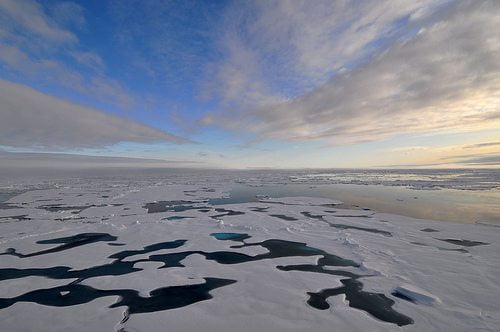

Environment
New study narrows the gap between climate models and reality
A new study led by a University of York scientist addresses an important question in climate science: how accurate are climate model projections?
Climate models are used to estimate future global warming, and their accuracy can be checked against the actual global warming observed so far. Most comparisons suggest that the world is warming a little more slowly than the model projections indicate. Scientists have wondered whether this difference is meaningful, or just a chance fluctuation.
Dr Kevin Cowtan, of the Department of Chemistry at York, led an international study into this question and its findings are published in Geophysical Research Letters. The research team found that the way global temperatures were calculated in the models failed to reflect real-world measurements. The climate models use air temperature for the whole globe, whereas the real-world data used by scientists are a combination of air and sea surface temperature readings.
Dr Cowtan said: “When comparing models with observations, you need to compare apples with apples.”
The team determined the effect of this mismatch in 36 different climate models. They calculated the temperature of each model earth in the same way as in the real world. A third of the difference between the models and reality disappeared, along with all of the difference before the last decade. Any remaining differences may be explained by the recent temporary fluctuation in the rate of global warming.
Dr Cowtan added: “Recent studies suggest that the so-called ‘hiatus’ in warming is in part due to challenges in assembling the data. I think that the divergence between models and observations may turn out to be equally fragile.”
Dr Cowtan’s primary field of research is X-ray crystallography and he is based in the York Structural Biology Laboratory in the University’s Department of Chemistry. His interest in climate science has developed from an interest in science communication. This is his second major climate science paper. For this project, he led a diverse team of international researchers, including some of the world’s top climate scientists.


 Features11 months ago
Features11 months agoEco-Friendly Cryptocurrencies: Sustainable Investment Choices

 Energy11 months ago
Energy11 months agoThe Growing Role of Solar Panels in Ireland’s Energy Future

 Energy10 months ago
Energy10 months agoGrowth of Solar Power in Dublin: A Sustainable Revolution

 Energy10 months ago
Energy10 months agoRenewable Energy Adoption Can Combat Climate Change


























